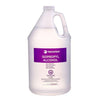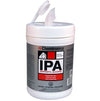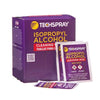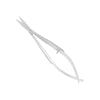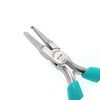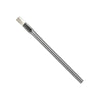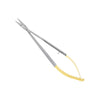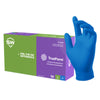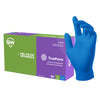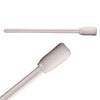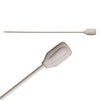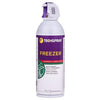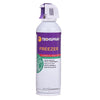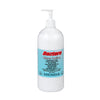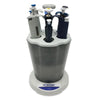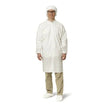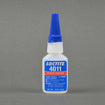- No products in the cart.
The Benefits of Using Nitinol Wire in Medical Applications
Feb
28
2023
Nitinol wire is an alloy with powerful properties that make it highly beneficial for use in medical implants and other applications. Not only does nitinol wire have great strength, but it is also corrosion resistant and able to handle temperature changes well. This makes it an ideal choice for the design of medical devices.
The shape memory of nitinol wire is perhaps its most important property. Shape memory refers to the specific condition that nitinol wire can remember and return to its original shape. When an external force like heating or an electrical current is applied, the material will expand or contract in a reversible process. Nitinol wire's unique ability offers medical device manufacturers numerous design possibilities for complex implants with intricate shapes and functions previously unimaginable or impossible to achieve with other metallic materials.
Advantages of Nitinol over Other Metals for Medical Applications.
When compared with other metals, nitinol offers a number of advantages which are beneficial in medical applications. Its superior fatigue resistance means that the wire will not break due to repeated use. Its temperature stability and corrosive resistance also renders it much more durable than titanium or stainless steel alloys, enabling medical implants made with nitinol to better survive extreme temperatures and wet environments. Finally, its shape memory properties make it very useful for shaping and forming complex shapes which can be tailored to fit various body types.
In addition to offering mechanical properties that allow for greater flexibility and resilience, nitinol can also be used to enhance the performance of other medical devices. Its unique electrical conductivity and resistance make it possible for nitinol wire to be used in pacemakers and other implantable medical devices, where it is essential to maintain a consistent heart rate. Its local magnetic field creates a detectable signal which can then be used as an input into medical monitoring systems. Finally, its shape memory properties mean that nitinol wire can be heated and reshaped multiple times without damaging its internal structure, making it a great choice for orthodontic braces and other uses where fitting often needs to be adjusted.
Additionally, its shape memory properties can be utilized to create complex parts with little effort. Commonly-used nitinol wire applications include pacemakers, artificial joints and ligaments, stents, dental implants and orthodontic braces.
Nitinol wire offers many advantages to medical device designers, including greater flexibility and lighter components, making it more comfortable to wear. It also provides cost savings in manufacturing by reducing assembly time and allowing for the production of complex shapes. Nitinol wire’s superior corrosion resistance makes it ideal for use in implantable devices which must remain in contact with the body’s tissues over a long period of time. And because nitinol wire is biocompatible, it is suitable for use in devices exposed to bodily fluids.
Introduction to Nitinol Wire
Nitinol wire is a unique metal alloy with a combination of nickel and titanium that, when heated, contracts and relaxes. It is this characteristic plus its superior strength and resistance to corrosion and temperature changes that make nitinol wire ideal for use in medical implants and other medical device applications. Nitinol wire has important properties such as shape memory, fatigue resistance, corrosion resistance, high ductility, biocompatibility and low electrical resistivity making it suitable for a variety of medical applications.The shape memory of nitinol wire is perhaps its most important property. Shape memory refers to the specific condition that nitinol wire can remember and return to its original shape. When an external force like heating or an electrical current is applied, the material will expand or contract in a reversible process. Nitinol wire's unique ability offers medical device manufacturers numerous design possibilities for complex implants with intricate shapes and functions previously unimaginable or impossible to achieve with other metallic materials.
How Does Nitinol Wire Make Medical Devices Better?
Nitinol wire is highly versatile, making it very useful in medical device applications. It has excellent corrosion resistance and temperature stability, so medical implants made with nitinol wire can withstand extreme temperatures and wet environments better than traditional stainless steel or titanium alloys. Furthermore, its shape memory properties make nitinol wire an ideal material for implantable devices that require flexibility for shaping to fit the body. Additionally, nitinol has superior fatigue resistance and electrical conductivity relative to other materials, making it a great choice for implantable sensor applications.Advantages of Nitinol over Other Metals for Medical Applications.
When compared with other metals, nitinol offers a number of advantages which are beneficial in medical applications. Its superior fatigue resistance means that the wire will not break due to repeated use. Its temperature stability and corrosive resistance also renders it much more durable than titanium or stainless steel alloys, enabling medical implants made with nitinol to better survive extreme temperatures and wet environments. Finally, its shape memory properties make it very useful for shaping and forming complex shapes which can be tailored to fit various body types.
In addition to offering mechanical properties that allow for greater flexibility and resilience, nitinol can also be used to enhance the performance of other medical devices. Its unique electrical conductivity and resistance make it possible for nitinol wire to be used in pacemakers and other implantable medical devices, where it is essential to maintain a consistent heart rate. Its local magnetic field creates a detectable signal which can then be used as an input into medical monitoring systems. Finally, its shape memory properties mean that nitinol wire can be heated and reshaped multiple times without damaging its internal structure, making it a great choice for orthodontic braces and other uses where fitting often needs to be adjusted.
Common Applications for Nitinol Wire in Healthcare Devices
With its unique properties, nitinol wire is a popular choice in many medical device applications. Its temperature stability makes it ideal for use in implants which require exposure to high temperatures, while its superior fatigue resistance means it is suitable for medical devices with repeated use.Additionally, its shape memory properties can be utilized to create complex parts with little effort. Commonly-used nitinol wire applications include pacemakers, artificial joints and ligaments, stents, dental implants and orthodontic braces.
Nitinol wire offers many advantages to medical device designers, including greater flexibility and lighter components, making it more comfortable to wear. It also provides cost savings in manufacturing by reducing assembly time and allowing for the production of complex shapes. Nitinol wire’s superior corrosion resistance makes it ideal for use in implantable devices which must remain in contact with the body’s tissues over a long period of time. And because nitinol wire is biocompatible, it is suitable for use in devices exposed to bodily fluids.
Summary of Benefits for Using Nitinol in Medical Devices and Equipment.
Nitinol wire offers many unique benefits for medical device applications, such as its strength, resistance to corrosion and temperature changes, fatigue resistance, and more. Its temperature stability allows it to maintain a solid state in extreme temperatures. Additionally, its superior fatigue resistance and shape memory properties make it an ideal choice for creating complex parts with minimal effort. Furthermore, nitinol's biocompatibility makes it safe for use in direct contact with human tissue and organs.
About Lab Pro
For over 40 years, Lab Pro Inc. has been committed to delivering the highest quality nitinol cutting hand tools, chemicals, lab equipment, distance learning kits, lab supplies, and cleanroom PPE apparel to medical device companies and laboratories worldwide. To learn more, visit the biggest Lab Supply showroom in California, or contact us online or at 888-452-2776.







